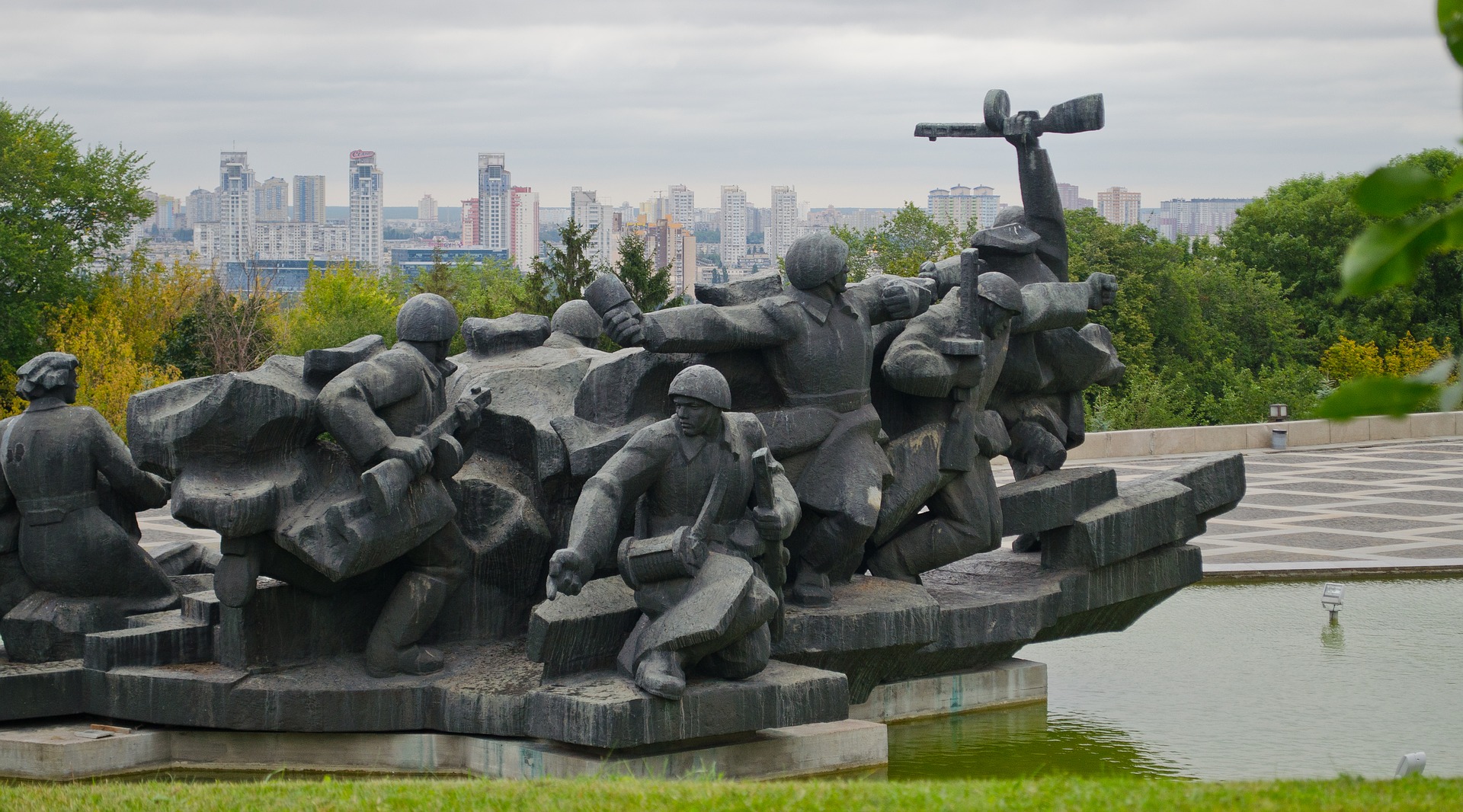Vasyl Symonenko (1935-1963), a Ukrainian dissident poet, died after a brutal attack by the Soviet police in Smila, Cherkasy Oblast, Ukraine. His death was likely connected to his interest in the mass graves at Bykivnia forest outside Kyiv, where the Soviet regime buried tens of thousands of its victims. His poem To A Kurdish Brother can be read as a call to his Ukrainian compatriots to rise against the Soviet regime. The Soviets had committed genocide against Ukrainians during the 1930s, exterminating millions of them during the Holodomor, a forced famine accompanied by mass executions. In the post war period the regime was slowly choking the remains of Ukrainian identity under the guise of “internationalism” by assimilating Ukraine’s people into Russian culture. Putin’s war is the Russian empire’s final effort to destroy Ukrainian identity, but it relates directly to hundreds of years of oppression.
To A Kurdish Brother
by Vasyl Symonenko
Fight… and overcome! Taras Shevchenko
The mountains cry, drenched in blood,
The battered stars fall down:
The fragrant valleys gouged and wounded,
Where chauvinism’s hunger tears in.
Oh, Kurd, conserve your ammo,
But don’t spare the lives of murderers.
Fall as a whirlwind of blood now
On these pillaging lawless bastards.
.
Only talk to them with bullets true:
They did not come just to take all you own,
But for your name and language too
And leave your son an orphan.
The oppressor will “rule” while you haul the cart
So you cannot consent to live with them
Drinking the blood of oppressed peoples they grow fat
For chauvinism is our most savage foe.
He will do anything, so that you submit,
He has betrothed treachery with shame,
Oh, Kurd, conserve each bullet,
For without them you won’t save your kin.
Do not lull to sleep the power of your hate,
Until the last chauvinist on the planet falls,
Into their open grave, only then take
Tenderness as your motto, however it calls.
—
Lina Kostenko was born into a family of teachers on 19 March 1930 in Rzhyshchiv, Ukraine. According to this poem, she wrote her first poem on the walls of a dug-out in World War II. It’s unlikely that this is poetic licence. Kostenko is a poet who is both highly literary, mixing references to Shakespeare and Gogol, but also very honest and accessible. That first poem written as shells fell around her has not survived so what we have instead is a poem about writing a poem. It is a powerful piece that speaks to the plight of children in war. She is currently seeing her country being invaded and shelled by another brutal dictator who, like Hitler and Stalin, wants to destroy the Ukrainian nation. Putin is committing war crimes and has displaced hundreds of thousands of refugees.
My first poem was written in a dug out
On a wall loosened by explosions
When stars were lost in the horoscope:
Though my childhood was not slain by war.
The fire poured its lava,
Stood in the grey craters of orchards,
Our path choked by water
In deranged barrages with flames
The world once bright now dark
That burning night illuminated to its depth
The dug out like a submarine
In a sea of smoke, fear and flame.
There is no longer rabbit or wolf there
Just a world of blood, carbonised star!
I wrote almost in shrapnel
Block capitals from the child’s primer.
I would still play in the dark and in classes
I flew on the wings of book covers in stories
And wrote poems about landmines
Having already seen death so close.
The pain of first unchildish impressions
What trace left on the heart
Verses do not say what I cannot speak
Have they not left mute the spirit?
The spirit in words is the sea in a periscope
And its memory, light refracted from my temple
My first poem, was written in a dug out
Simply imprinted on the soil.
Both poems translated from the Ukrainian by Stephen Komarnyckyj





